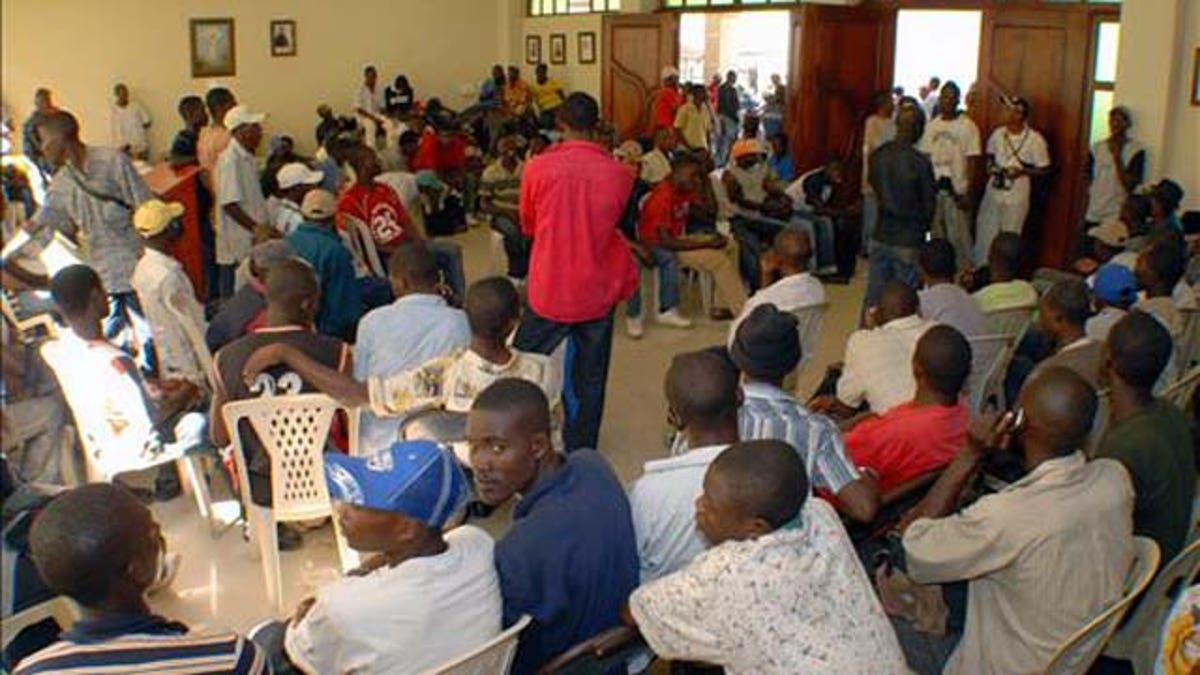
The honeymoon between Dominicans and Haitians since January's devastating earthquake is apparently over.
After opening its arms to its displaced neighbors last year, the Dominican Republic is cracking down on Haitian immigrants, deporting them by the hundreds in recent days, officials said Thursday.
The countries share the Caribbean island of Hispaniola, but have a long history of cross-border tension. Relations improved in the aftermath of the Jan. 12 quake, with the Dominican government providing assistance and serving as a staging ground for the international relief effort.
Still, human rights groups complain that Haitians are subjected to bitter discrimination.
The Dominican government, which suspended deportations after the earthquake, resumed anti-illegal immigration efforts this week, stopping and detaining people at checkpoints around the country. In a rare move, checkpoints were also set up outside the capital.
More than 700 Haitians have been deported since Monday and more are expected in coming days, said Ambiorix Rosario, Department of Migration spokesman.
Dominican officials said the crackdown is necessary to stem growing undocumented immigration since the earthquake and to prevent the spread of cholera, which has killed more than 3,000 people in Haiti since the outbreak began in October. About 150 have been sickened in the Dominican Republic.
"We are trying to strengthen our immigration controls to prevent Haitian citizens and people of other nationalities from illegally entering our territory," said Sigfrido Pared Pérez, director of the Department of Migration. "In no case have we violated anyone's human rights."
Immigration agents and soldiers were stopping and questioning people as they reached the outskirts of the capital in buses and vans that each day carry people from Haiti to Santo Domingo. Those without the required papers were being loaded up on buses and taken back to the border.
"If I was alone, I'd be back in Haiti, that's my country, but I have three kids and need to work," an unidentified woman told local television station CDN before she was taken on a bus back to the border carrying a small suitcase.
The United Nations estimated before the earthquake that some 600,000 Haitians were living without documents in the Dominican Republic. Dominican authorities say that number has grown to 1 million over the past year, in a country with a population of nearly 10 million. Migrants tend to work harvesting sugar cane, as domestic servants or in other low wage jobs.
Human rights groups criticized the deportations, accusing authorities of stopping and questioning people based on their physical appearance.
"The acting authorities are clearly following a racial profile to decide who should be detained," said Francisco Leonardo with the Jesuit Refugee and Migration Service.
The crackdown also has increased the amount some Dominican border agents are asking for passage, from about $6 to nearly $14, said Davide Sala, an activist with the Jesuit organization.
Human traffickers also are charging more: $135 per person compared with $95, he said.
About a dozen suspected traffickers were arrested this week along with dozens of Haitian migrants, said Francisco Gil, army commander for the country's north region.
Based on reporting by the Associated Press.
Follow us on twitter.com/foxnewslatino
Like us at facebook.com/foxnewslatino








































